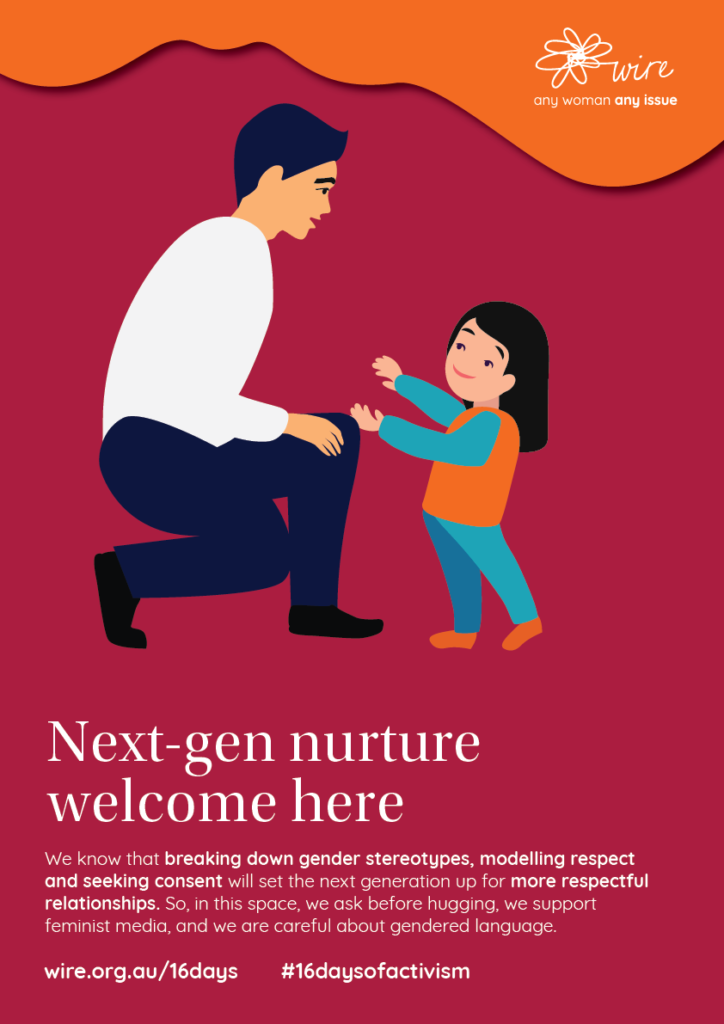Too visible, yet not fully seen
With support from the Ecstra Foundation, WIRE conducted the COVID-19 Financial ...

We know that breaking down gender stereotypes, modelling respect and seeking consent will set the next generation up for more respectful relationships.
Toxic masculinity – a rigid adherence to traditional norms of masculinity such as entitlement, aggressiveness, disdain for women and homophobia – is alive and well.
We need cases of sexual assault to be taken seriously. We need the justice system to support and believe survivors of sexual violence. We need a culture which celebrates consent and respectful relationships.
There’s so much work ahead of us to achieve this vision.
Just last month we witnessed awful footage of schoolboys singing a sexist chant that reminds us just how much male privilege continues to go unquestioned at private boys’ schools.
The lessons we teach our kids about gender roles are inextricably linked to the roles they feel entitled to assume in later life.
So how do we raise our kids in a world that conditions boys into entitlement, privilege and power at the expense not just of everyone’s else’s humanity but also their own?
Show your kids how it should be. Teach consent and respectful relationships (like asking before hugging), support feminist media, be careful about gendered language and model respectful behaviour as well as social and emotional skills.
Every year, between November 25 — the International Day for the Elimination of Violence Against Women — and December 10 — International Human Rights Day — there are 16 Days of Activism Against Gender-based Violence.
This year we’ve created a series of posters for you to print out at work, home or your local library, and to put up in your kitchen, community hall, meeting room at work — wherever you like. Help create a world where women, nonbinary and gender-diverse people are safe, respected, empowered and able to make genuine choices in their lives.
Violence towards women, nonbinary and gender-diverse people is a community problem. Everyone in the community, from schools to sporting clubs, can play a role in changing the structures, norms and practices that lead to gender-based violence.
Some of these actions will be individual and some will be collective: gender-based violence is a structural issue that we all need to work together to address.